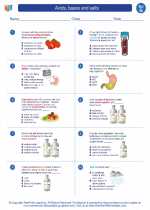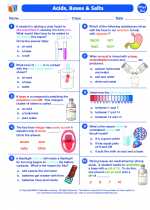Roundworms
Roundworms, also known as nematodes, are a diverse group of organisms that belong to the phylum Nematoda. They are found in almost every environment on Earth and can be both free-living and parasitic. Roundworms have a long, slender, unsegmented body with a digestive system that runs from the mouth to the anus. They are important in various ecological processes and have significant impacts on human health, agriculture, and the environment.
Anatomy of Roundworms
Roundworms have a simple body plan with a fluid-filled body cavity called a pseudocoelom. They have a complete digestive system with a mouth, pharynx, intestine, and anus. Some roundworms have specialized structures such as sensory organs, reproductive organs, and a protective cuticle covering their body.
Reproduction
Roundworms reproduce sexually, with separate male and female individuals in most species. Fertilization can occur internally or externally, depending on the species. Some species also have the ability to reproduce asexually through parthenogenesis.
Ecological Importance
Free-living roundworms play crucial roles in nutrient cycling and decomposition, as they help break down organic matter in soil and water. Parasitic roundworms can have significant impacts on the health and productivity of plants, animals, and humans, causing diseases such as trichinosis and ascariasis.
Study Guide
- What is the phylum to which roundworms belong?
- Describe the body plan of roundworms.
- Explain the reproductive methods of roundworms.
- Discuss the ecological importance of roundworms.
- Give examples of diseases caused by parasitic roundworms.







